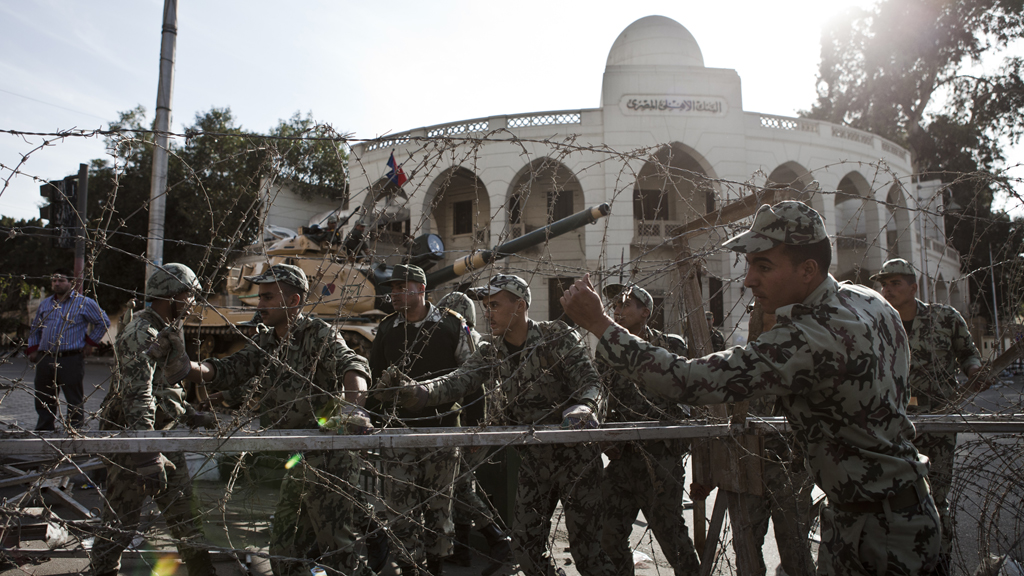Egypt opposition rejects talks with Mursi to end violence
Egypt’s main opposition coalition refuses to take part in President Mohammed’s proposed dialogue to end a crisis sparked by the Islamist leader’s decision to expand his powers.

In a televised speech, Mr Mursi proposed a meeting on Saturday involving political leaders, “revolutionary youth” and legal figures to discuss the way forward after a referendum on a new constitution set for 15 December.
The president’s call was rejected, as was his plan to have a referendum on his plans. The National Salvation Front, the main opposition coalition, said on Friday it would not take part in discussions with the leader.
“That is the official stance,” said Ahmed Said, one of the leading members of the coalition who also heads the liberal Free Egyptians party.
Prominent reformist Mohamed ElBaradei also urged political forces to shun dialogue on his Twitter account, and the state news agency reported that the liberal Wafd party said it would not take part. Both are members of the National Salvation Front.
Calls for more protests
Thefront called for more protests and planned to meet today to discuss President Mursi’s decision to expand his powers.
“We have decided to meet this afternoon and discuss the whole issue and the proposal and speech by the president. We want a collective stand on that,” Amr Moussa, a presidential candidate and former Arab League chief, told Reuters.
There has been trouble in Egypt since President Mursi granted himself sweeping new powers, including putting himself above the law, a fortnight ago. Seven people were killed and hundreds injured this week in clashes around the presidential palace.
Obama ‘deeply concerned’
President Obama, in a phone call with President Mursi, expressed his “deep concern” about the deaths and injuries of protesters.
“The president emphasised that all political leaders in Egypt should make clear to their supporters that violence is unacceptable,” a White House statement said.
The UN’s top human rights official has expressed alarm about the casualties resulting from protests. UN High Commissioner for Human Rights Navi Pillay said she welcomes Mr Mursi’s call for dialogue but regrets that tensions haven’t subsided.
Ms Pillay said in a statement on Friday that the draft constitution contained “some very worrying omissions and ambiguities, and in some areas the protections in it are even weaker than the 1971 constitution it is supposed to replace.”




